
Conceyu Bable (in Asturian language, Bable Council) was an Asturian association legalized in 1976, which objective was the recovery and dignification of the Asturian language. [1]

Conceyu Bable (in Asturian language, Bable Council) was an Asturian association legalized in 1976, which objective was the recovery and dignification of the Asturian language. [1]
In the final years of Francoist Spain, arose a new generation of Asturian-language authors that took the ideas of Gaspar Melchor de Jovellanos (1744) and tried to surpass the traditional use of the Asturian language in rural and local compositions (often they were made up for the celebrations of the localities in the local dialect). This new generation tried to equip to the Asturian language with a Modern literature, next to the prevailing literary currents in Spain and Europe, while they tried to demonstrate the suitability of the language for any social or literary use.
On 1969 Xose León Delestal [2] founded the association Amigos del Bable, that was a first attempt of recovery of the language, and that concentrated mainly in the disc edition in Asturian, organizing in November 1973 the Regional Assembly of the Bable, presided over by Emilio Alarcos Llorach. In this Assembly, were put the pillars of a new Asturian movement called Surdimientu [3] (Awakening) and a part of the participants decided to constitute a group centered in the recovery of the language and, unlike the Amigos del Bable, they did use written and spoken of Asturian language.
On November 16, (1974), appeared in number 284 of the magazine "Asturias semanal" [4] the section Conceyu Bable, that would give name to the association (legalized in June 1976), in which wrote in Asturian, among others, Xosé Lluis García Arias, Xuan Xosé Sánchez Vicente and Lluis Xabel Alvarez. They were the true creators of prosa in Asturian, responsible for the sprouting of a group of writers who broke with the literary models reserved the Asturian language until then, and of the appearance of an industry cultural own, with the publication of books, discs and articles in magazines and newspapers in Asturian.
Conceyu Bable laid the foundations of the current Asturian standard cultured, based in Central Asturian variant, for being the one that it had the most speakers (+80%) and the most used by the writers, and from 1975 they organized courses of Asturian in municipalities of the center of Asturias. In 1976, members of the association published the first modern grammar of the language, “Gramática bable”.
On June 22 of 1976, a manifestation was summoned in Xixón to ask for the presence of the Asturian one in the school. The motto of the call, «bable nes escueles», [5] was made one very well-known one then. In the manifestation participated the "Coordinación Democrática de Asturias" that included to the democratic parties and it counted on the participation of 5,000 people. After its legalization Conceyu Bable celebrated a congress, in which Xosé Lluis García Arias was chosen as president. Gradually the association moved towards nationalistic positions (Conceyu Nacionalista Astur) and from 1980, they lost all their influence with the appearance of Academy of the Asturian Language.

Asturias, officially the Principality of Asturias, is an autonomous community in northwest Spain.

Asturleonese is a Romance language spoken primarily in northwestern Spain, namely in the historical regions and Spain's modern-day autonomous communities of Asturias, northwestern Castile and León and Cantabria, and also in a small neighbouring area of Portugal. The name of the language is largely uncommon among its native speakers, as it forms a dialect continuum of mutually intelligible varieties and therefore it is primarily referred to by various regional glossonyms like Leonese, Cantabrian, Asturian or Mirandese. Extremaduran is sometimes included as well. Asturleonese has been classified by UNESCO as an endangered language, as Asturian is being increasingly replaced by Spanish.

The Academia de la Llingua Asturiana or Academy of the Asturian Language (ALLA) is an Official Institution of the Government of the Principality of Asturias that promotes and regulates the Asturian language, a language of the Spanish autonomous community of Asturias. Among its principal objectives are investigating and normalising the Asturian Language, developing a dictionary, promoting its use and education and awarding literary prizes. It has 21 full members, 19 foreign members and 15 honorary members, and its current president is Ana María Cano González.

Leonese is a set of vernacular Romance language varieties currently spoken in northern and western portions of the historical region of León in Spain and a few adjoining areas in Portugal. In this narrow sense, Leonese is distinct from the dialects grouped under the Asturian language. There is no real linguistic division, though; it is only a purely political and identitary division, as dialectal areas are in fact shaped along a north-south axis. In the past, it was spoken in a wider area, including most of the historical region. The current number of Leonese speakers is estimated at 20,000 to 50,000. The westernmost fringes of the provinces of León and Zamora are in the territory of the Galician language, although there is dialectal continuity between the linguistic areas.
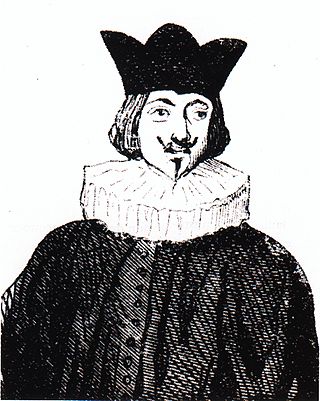
Antón González Reguera, better known as Antón de Marirreguera was the author of the first preserved literary works written in the Asturian language, the «Pleitu ente Uviéu y Mérida pola posesión de les cenices de Santa Olaya», of 1639, that takes the first prize in a poetical contest dedicated to Saint Eulalie. Other works include the «Diálogu políticu», the fables «Dido y Eneas» and «Hero y Lleandro» and the entremeses «L'ensalmador» (The Healer, «L'alcalde» and «Los alcaldes».

Asturian is a West Iberian Romance language spoken in the Principality of Asturias, Spain. Asturian is part of a wider linguistic group, the Asturleonese languages. The number of speakers is estimated at 100,000 (native) and 450,000. The dialects of the Astur-Leonese language family are traditionally classified in three groups: Western, Central, and Eastern. For historical and demographic reasons, the standard is based on Central Asturian. Asturian has a distinct grammar, dictionary, and orthography. It is regulated by the Academy of the Asturian Language. Although it is not an official language of Spain it is protected under the Statute of Autonomy of Asturias and is an elective language in schools. For much of its history, the language has been ignored or "subjected to repeated challenges to its status as a language variety" due to its lack of official status.

Ḷ is a letter of the Latin alphabet, derived from L with a diacritical dot below. It is or was used in some languages to represent various sounds.

Galician–Asturian or Eonavian is a set of Romance dialects or falas whose linguistic dominion extends into the zone of Asturias between the Eo River and Navia River. The dialects have been variously classified as the northeastern varieties of Galician, as a linguistic group of its own, or as a dialect of transition between Galician and Asturian, an opinion upheld by José Luis García Arias, the former president of the Academy of the Asturian Language (ALLA).
Partíu Asturianista (PAS) is a nationalist political party from Asturias, Spain, founded in 1985 by Xuan Xosé Sánchez Vicente.
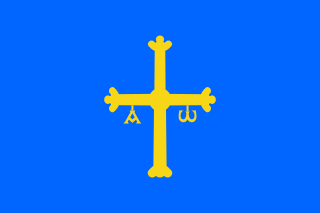
Asturians are a Romance ethnic group native to the autonomous community of Asturias, in the North-West of the Iberian Peninsula.

Lluis Antón González is an Asturian actor, writer, and director.
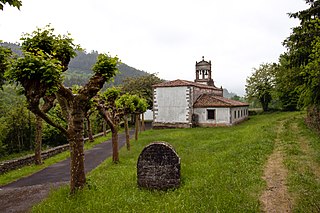
Grases is one of 41 parishes in Villaviciosa, a municipality within the province and autonomous community of Asturias, in northern Spain.

The Abbey of San Juan Bautista de Corias is a former Benedictine monastery in Corias in Cangas del Narcea (Asturias), Spain, on the right bank of the Narcea River, dedicated to Saint John the Baptist. Today it is a historic site of the province, informally known as "the Asturian Escorial", due to the burial there of King Bermudo I of Asturias and his family.

Asturian literature is the writings in the Asturian language of the northwest Iberian Peninsula. The earliest documents date back to the 10th century, but the peak period of literary output was in the 18th century, with a late 20th century revival.

Asturian Nationalist Council, was a political party in Asturias, Spain. The CNA was Asturian nationalist and socialist party.
The National Prize for Asturian Literature is a literary award given by the Academy of the Asturian Language every three years to writers who are most known for their literary career in the Asturian language. The prize cannot be shared between more than one author nor cannot it be awarded posthumously. It was first awarded in 2017.

The movement for the officiality of the Asturian language, also known as the movement for the officiality is the social movement present in Asturias that demands that the Statute of Autonomy of the Principality of Asturias give Asturian the same role as Spanish, like it occurs in other Autonomous Communities with its own language.
Pablo Xuan Manzano Rodríguez a scholar of Asturian language. He carried out his basic education in his home village and later on he studied teaching in the University School of Oviedo. He started to work at the age of 20 in the school of L'Entregu, and afterwards he also worked in Gijón, Amieva and Campo de Caso before he started working in the Juan José Calvo Miguel High School in Sotrondio. He is a member of the Council of Asturian Communities representing the Academy of the Asturian Language, of which he has been a fellow since 1984.
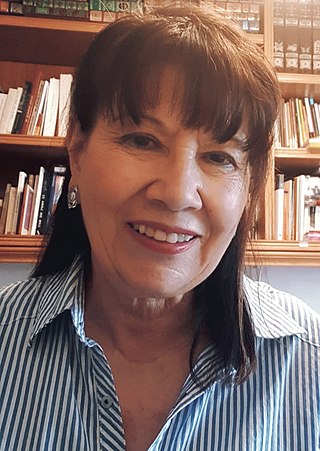
María Esther García López is a poet and writer in Asturian and Spanish. She is the president of the Asociación de Escritores de Asturias.
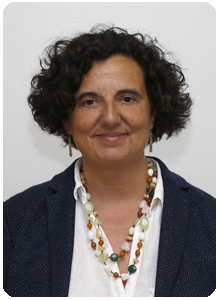
Berta Piñán Suárez is an Asturian writer, professor of Spanish Language and Literature, full member of the Academy of the Asturian Language, and since July 25, 2019, Minister of Consejerí